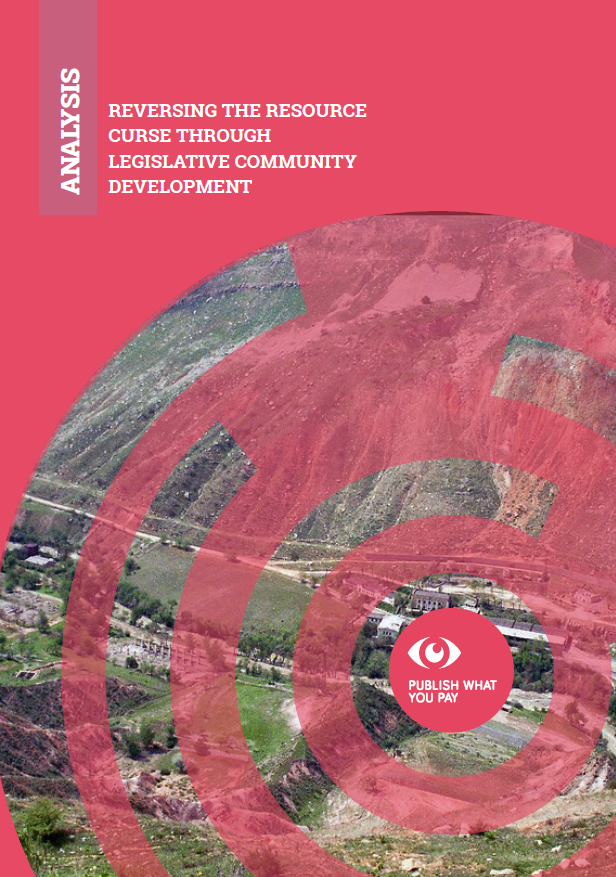How has extractive project-level data been used at the subnational level?
Publish What You Pay Indonesia has led a project to increase the capacity of local CSOs to use project-level EITI data for identifying governance issues on the revenue chain, as well as for raising public awareness on the importance of extractive industries transparency.
Working with five of their coalition members in sub-national producing areas, PWYP Indonesia carried outresearch and dissemination to contextualize the EITI Indonesia report and cross-checked and analysed the project level data contained in the EITI Indonesia Report.
The workshop on dissemination was conducted on 19 June 2014 in Jakarta and attended by around 40 participants, consisting of representatives of various NGOs, government institutions, and bilateral and multilateral donor agencies and foundations. NGOs in attendance were both national and smaller local NGOs working on issues related to corruption, natural resources, the national parliament, government budgets, good governance, open data and law and public policy reform. Government representatives from the Ministry of Energy and Natural Resources, the oil and gas regulator (SKK Migas), the Ministry of Home Affairs attended as well as representatives from the Coordinating Ministry of Economic Affair and the Secretariat of EITI Indonesia. All of these Government agencies belong to EITI Indonesia’s multi-stakeholder Implementation Team. The Anti-Corruption Commission also participated in this forum. The workshop was comprised of two sessions.
The first session featured presentations of the research findings and experience-sharing on contextualizing the EITI Indonesia report in five provinces – Riau, West Kalimantan, South East Sulawesi, West Nusa Tenggara and Papua. The main presentations were:
1. Revenue Sharing in the Riau province – Here, PWYP Indonesia and its local partner LPAD examined data on revenue-sharing in the oil, gas, and coal industry. Researchers compared the figures on revenue sharing from Indonesia’s EITI report with the amount the central government claimed to have distributed to the local government, and finally what the local government stated it had received. The report found significant and concerning discrepancies in the numbers reported by each entity.
2. Mapping production and revenue in nickel mining (South East Sulawesi) This report focused on the flow of revenues from nickel mining in S.E. Sulawesi Tenggara. The findings revealed discrepancies in data on the flow of revenues from nickel (in the years 2009-2012) between the EITI Indonesia report and what local governments reported. The report also featured rare export data gained from customs agencies at individual ports.
3. Mapping the mine concessions of West Kalimantan – The report mapped the boundaries of all natural resource concessions in West Kalimantan and found significant overlaps with mining concessions being awarded on administratively protected forest areas. The report also calculated the potential loss of land rent based on license areas. This finding showed that “spatial transparency” discourse needs to be promoted in order to improve the governance of extractive industries in West Kalimantan and Indonesia. Key findings may be viewed on the Spatial Map.
4. West Nusa Tenggara province – With local partner SOMASI, PWYP Indonesia explored the management of revenue sharing for the improvement of public service in West Lombok and West Sumbawa (two districts in West Nusa Tenggara Barat). The findings showed that the allocation of revenue sharing for public services in West Nusa Tenggara, including West Lombok and West Sumbawa were quite minimal, and that social welfare and economic development is lagging.
5. Making the EITI report accessible for Papua’s citizens – AJI Papua and PWYP Indonesia shared their experiences on disseminating and making accessible the EITI Indonesia report in Papua. They had done this through talk shows on local TV and radio, SMS transmissions, and a newsletter. Testimonies from various stakeholders in Papua, sometimes amusing, may be viewed here and from local government may be viewed here.
From the five presentations, there were some salient recommendations:
- Production data should be included in Indonesia’s EITI process, both on a disaggregated basis (such as total production for each project) and an aggregated basis (total national production of minerals, coal, oil and gas).
-
Corporate Social Responsibility Payments, as well as other social and environment payments from companies should be included in the EITI report.
-
Full spatial transparency should be a priority, as well as tracking of revenues from extractive industries.
-
It is important to promote and intensify transparency and if possible synchronization of extractive industry data at the national vs. sub-national levels to ensure that the figures reported by central government and local government match.
- The role of civil society needs to be strengthened, especially to monitor the utilization of extractive industries revenue sharing for local development.
In the second session, participants divided into two groups to draw up recommendations regarding the EITI mechanism and the CSO strategies to follow up the findings of research and further contextualizing of EITI Report for EI Governance Improvement. The first group made suggestions as to how to improve EITI in Indonesia, for instance by
1) Strengthening the EITI Indonesia Presidential Regulation (26/2010) to bring it into compliance with the new EITI Standard- particularly regarding social and environment payments, beneficial ownership and contract transparency, as well as increasing the numbers of non-government representatives on the MSG;
2) Engaging a larger number of local governments in the EITI mechanism;
3) Ensuring the fullest possible implementation of the new EITI Standard in Indonesia;
4) Including oil and gas cost recovery in the EITI reporting mechanism.
The second group mapped problematic areas of extractives industries governance and proposed strategies for their improvement. Five areas were identified: licensing mechanism, revenue flows and payment, lack of regulation, the authority conflict between central and local governments and law enforcement. To tackle these issues, five key strategies were recommended:
1) Freedom of information and open data advocacy;
2) Strengthening investigation of specific cases such as overlapping of licenses, shortfalls in revenues and conducting researched based on disaggregated data in EITI Indonesia reports;
3) Legal and regulatory advocacy and policy reform;
4) Auditing of licenses and licensing;
5) Developing pressure groups and multi-stake holders forums for EI governance reforms.











